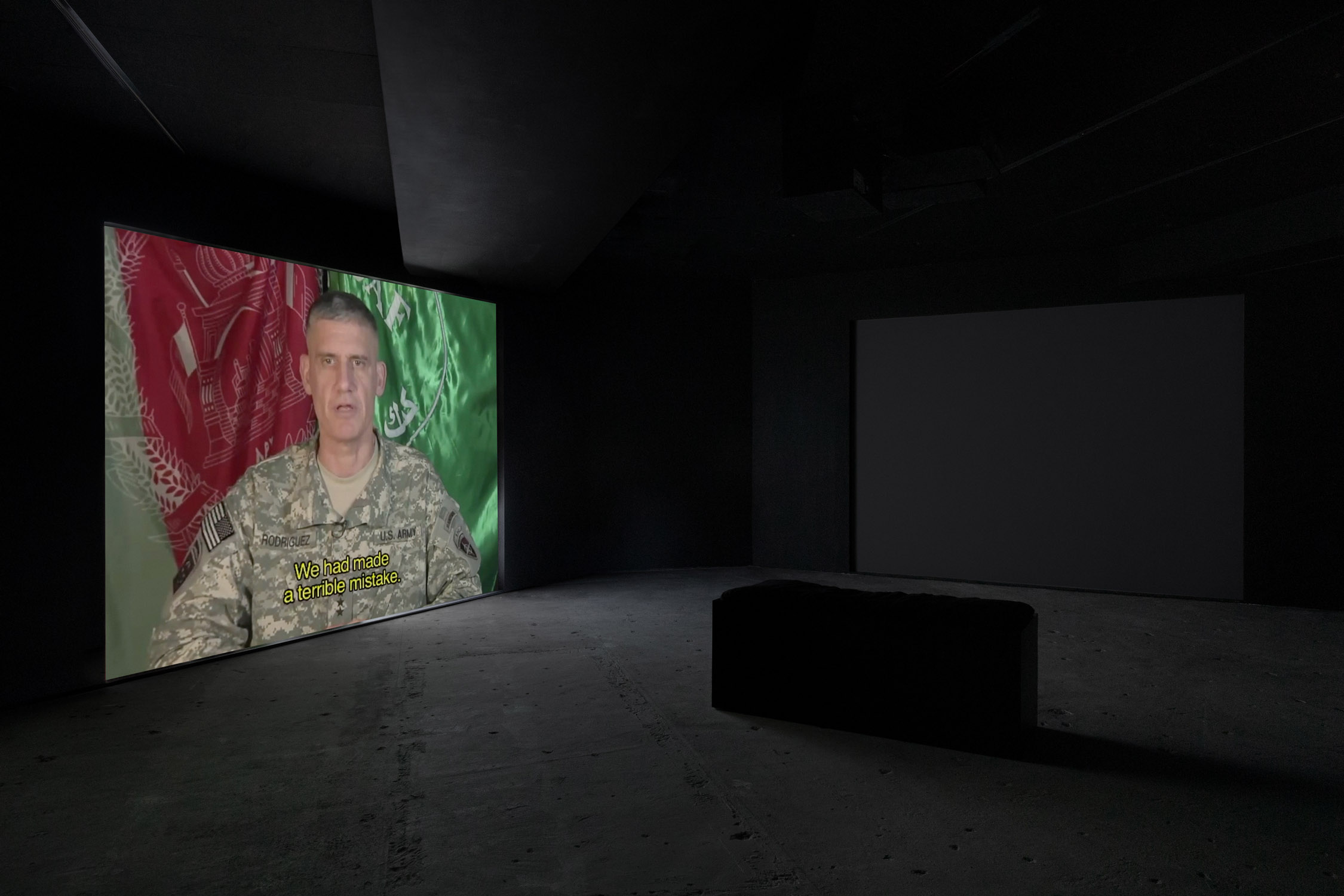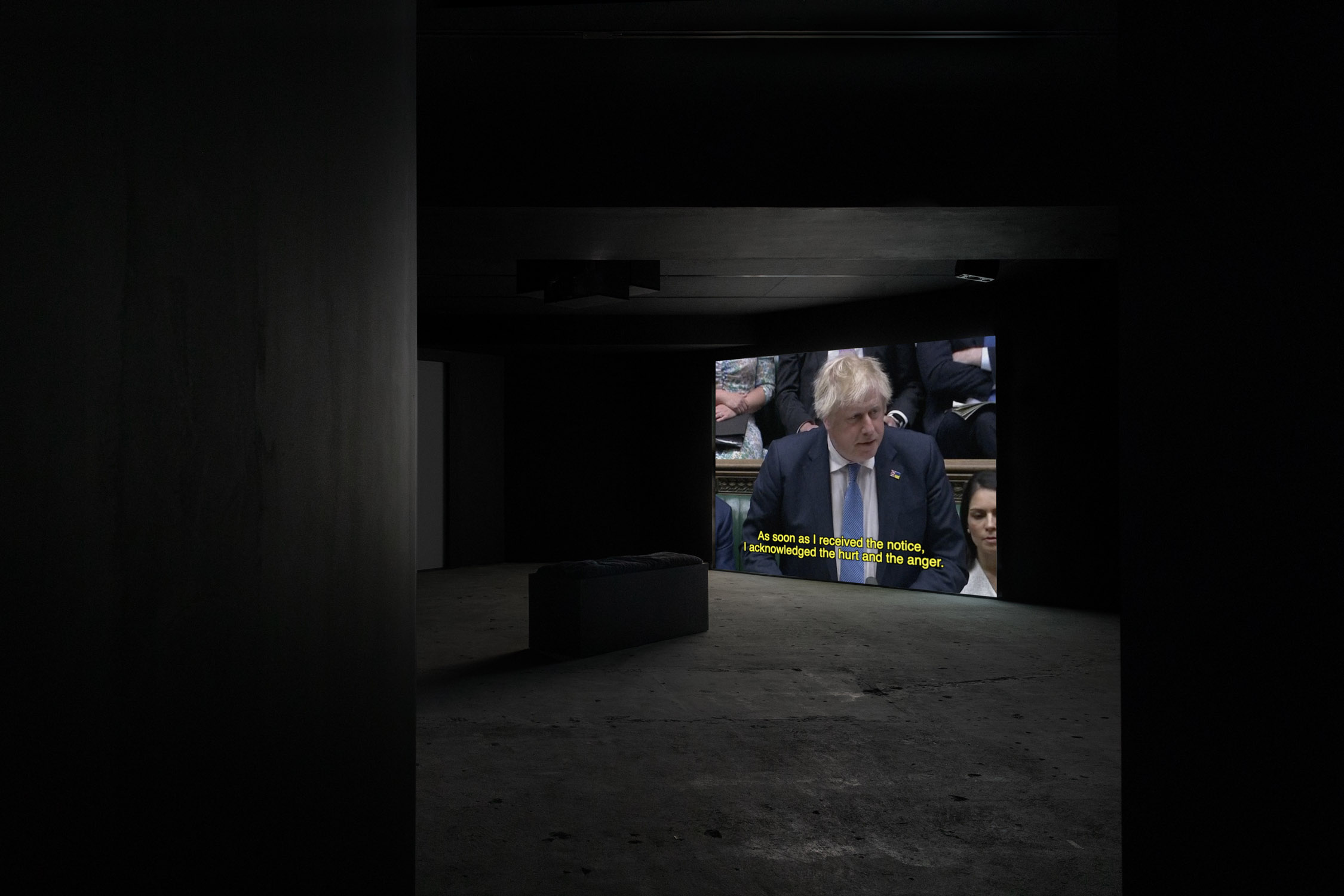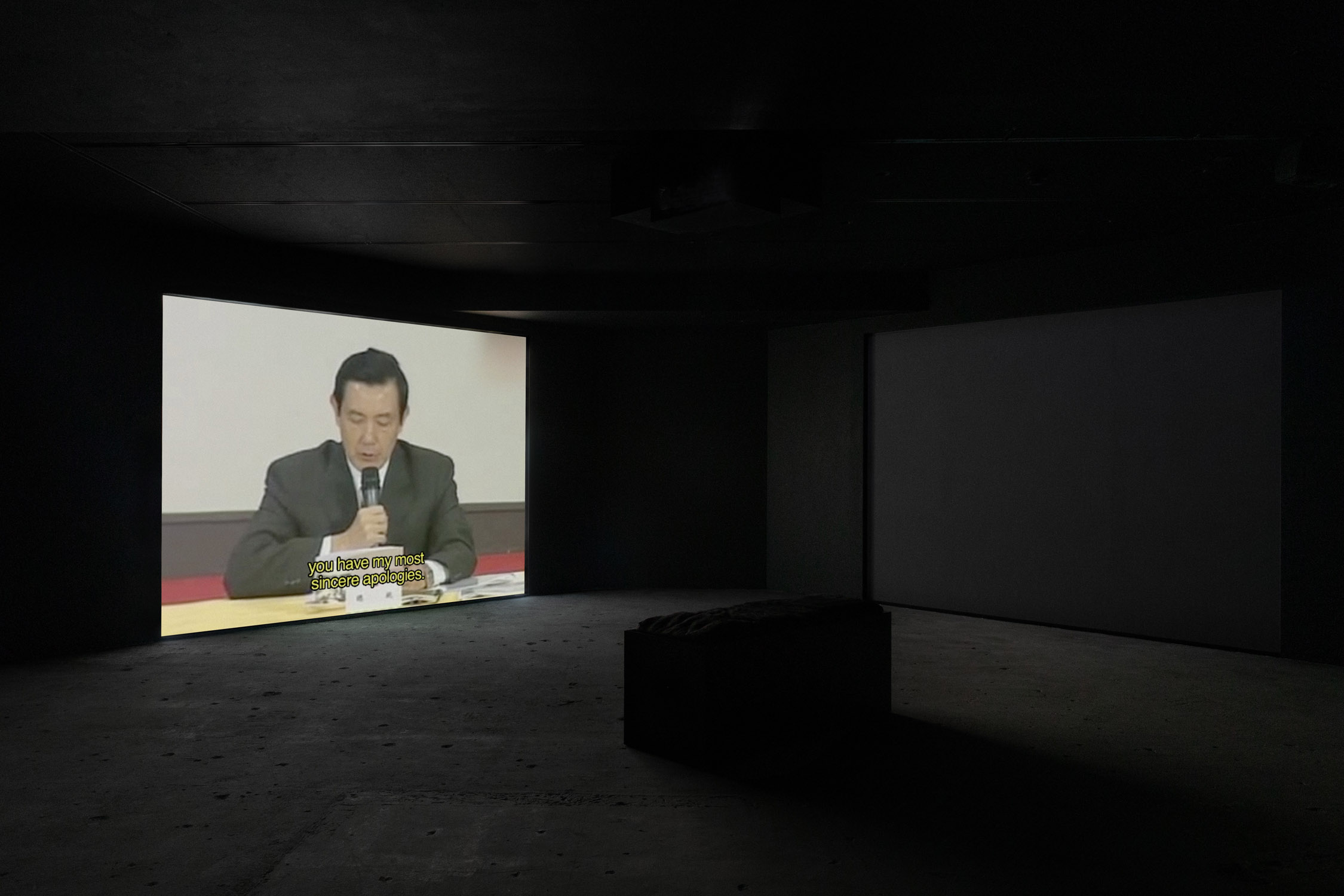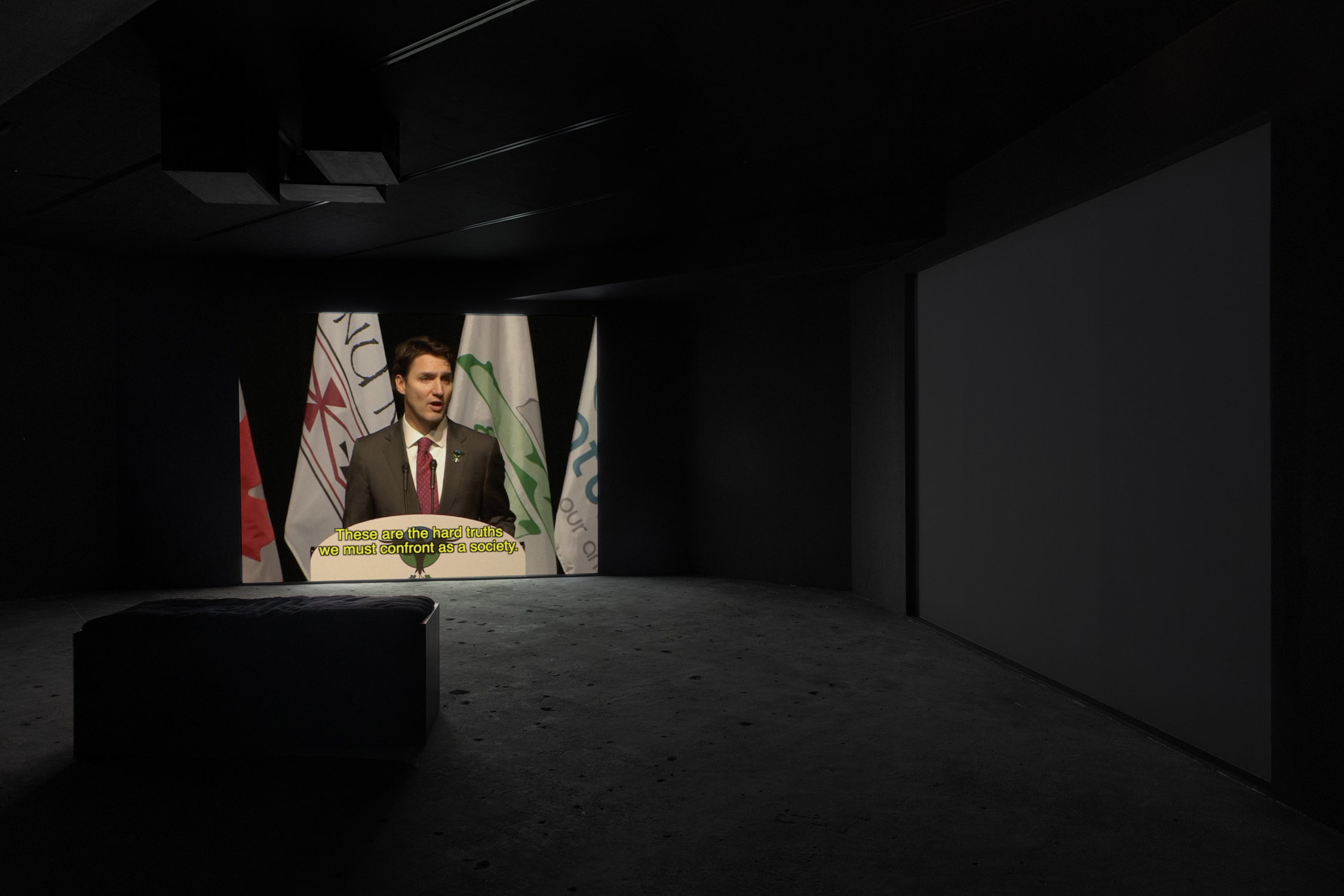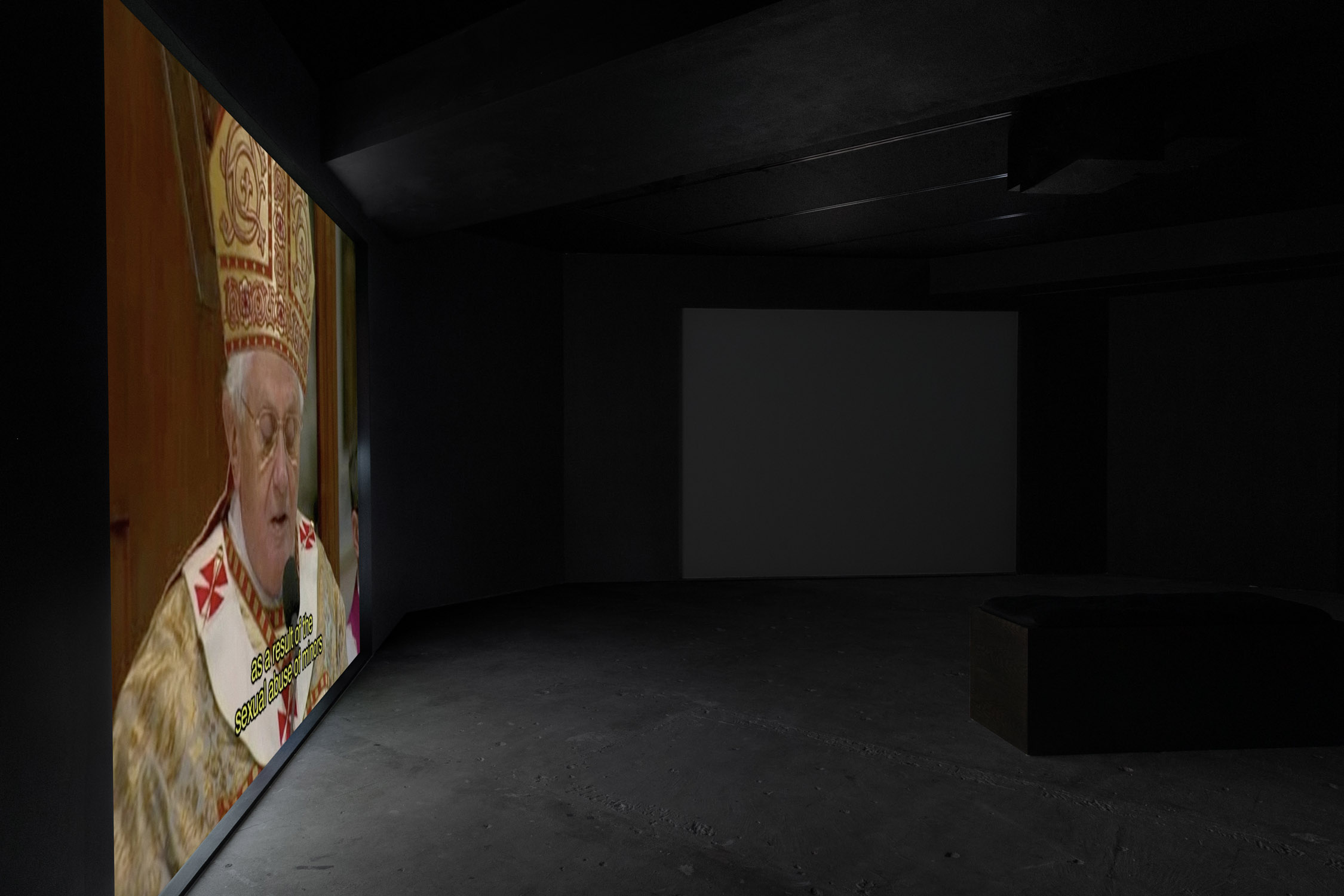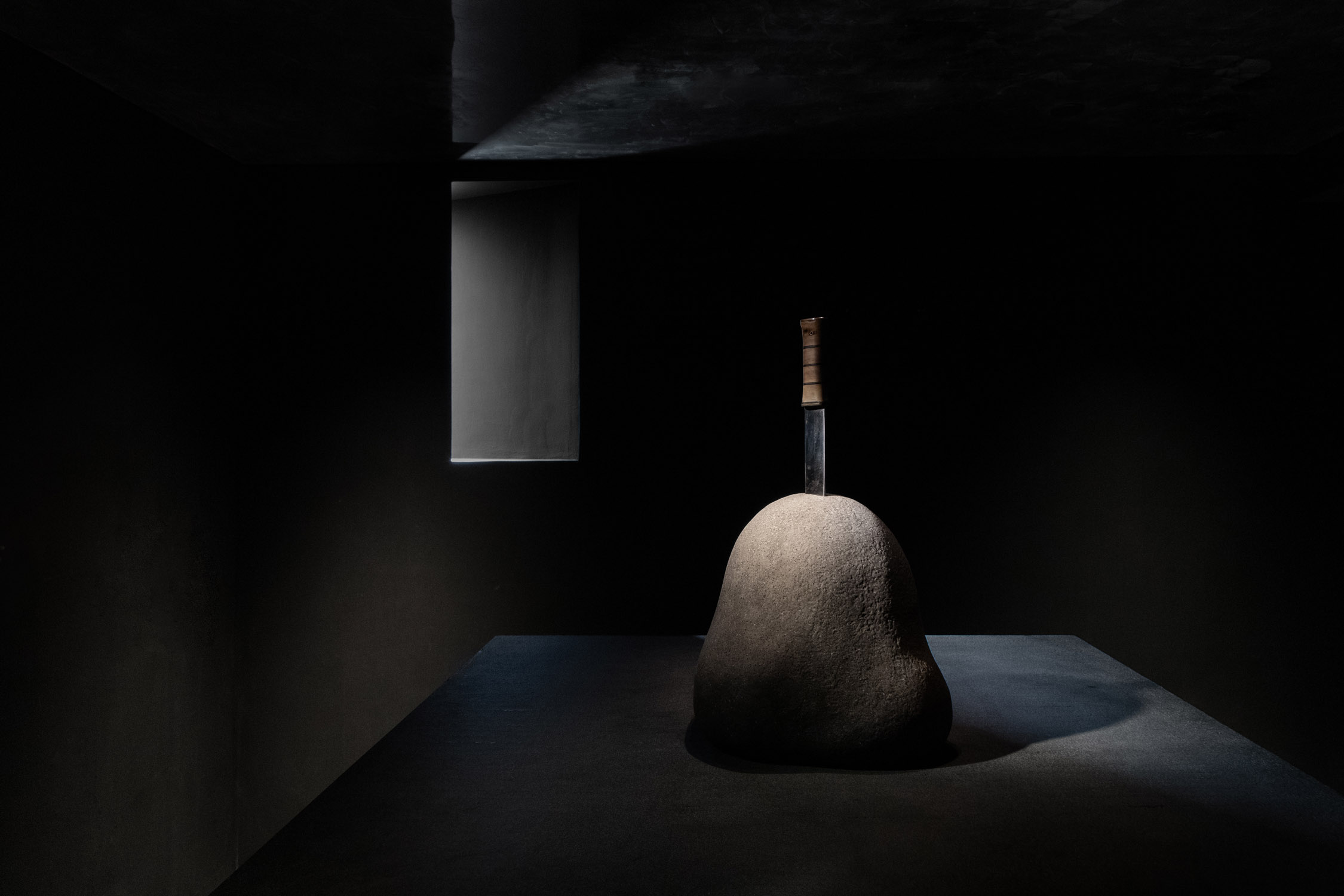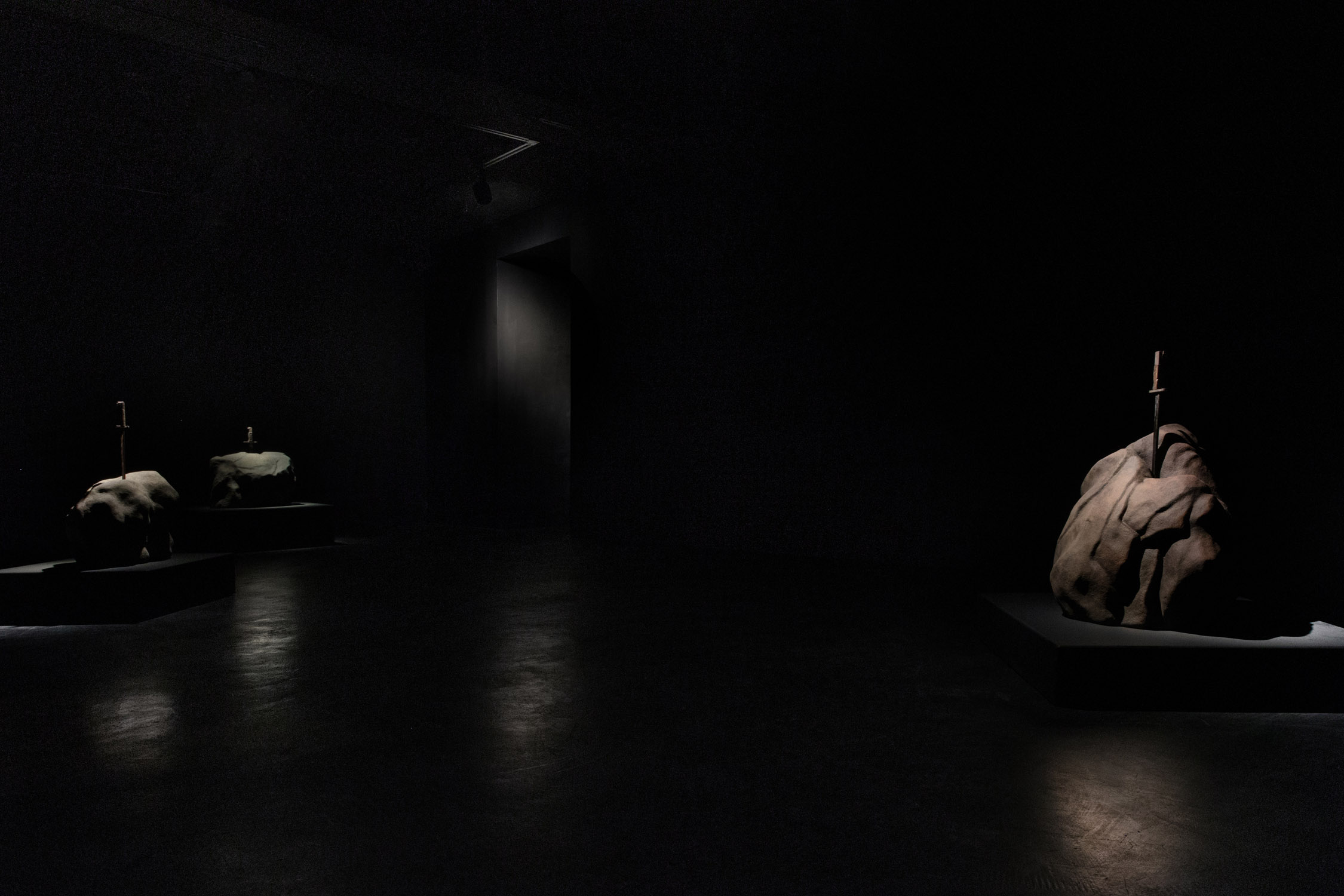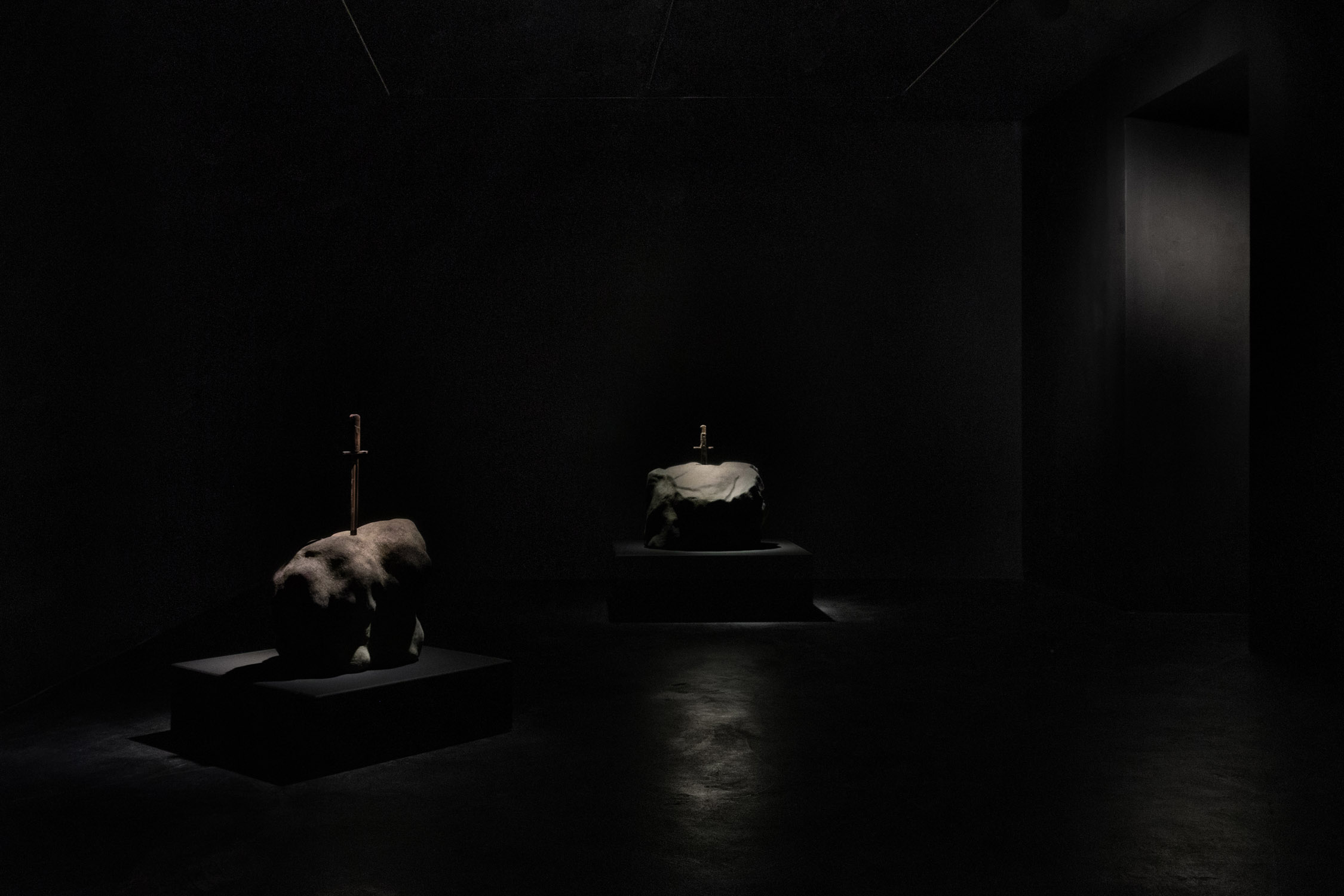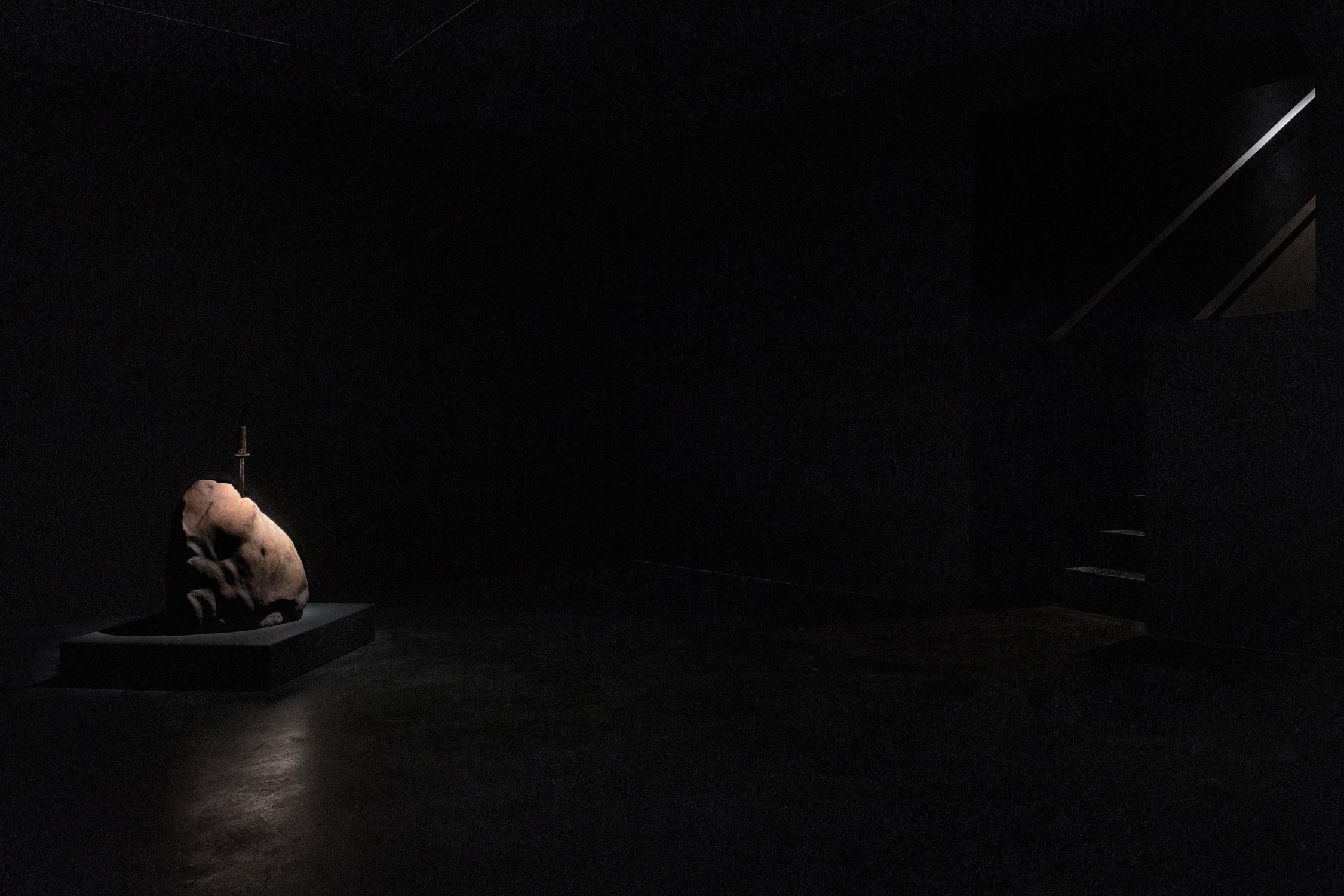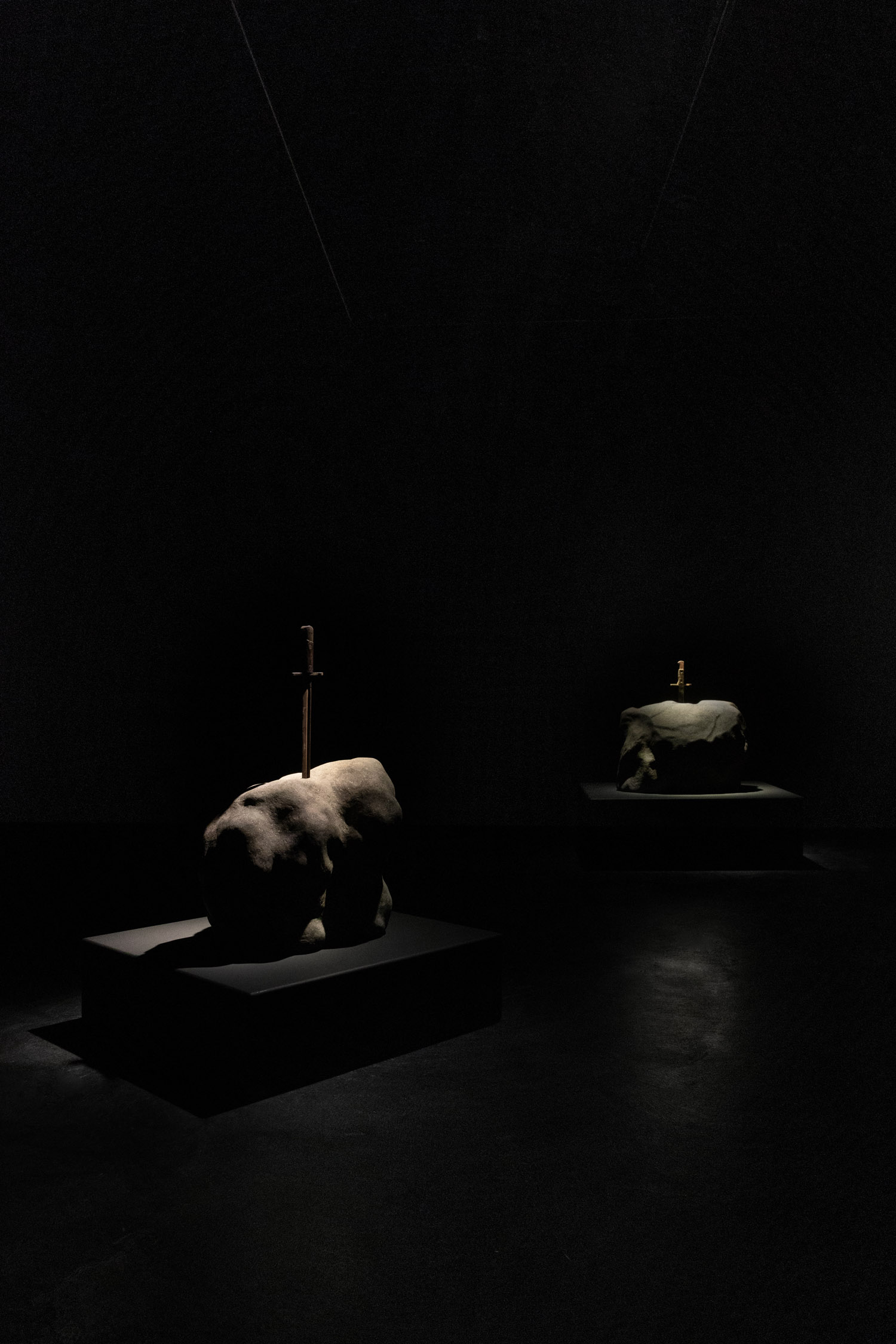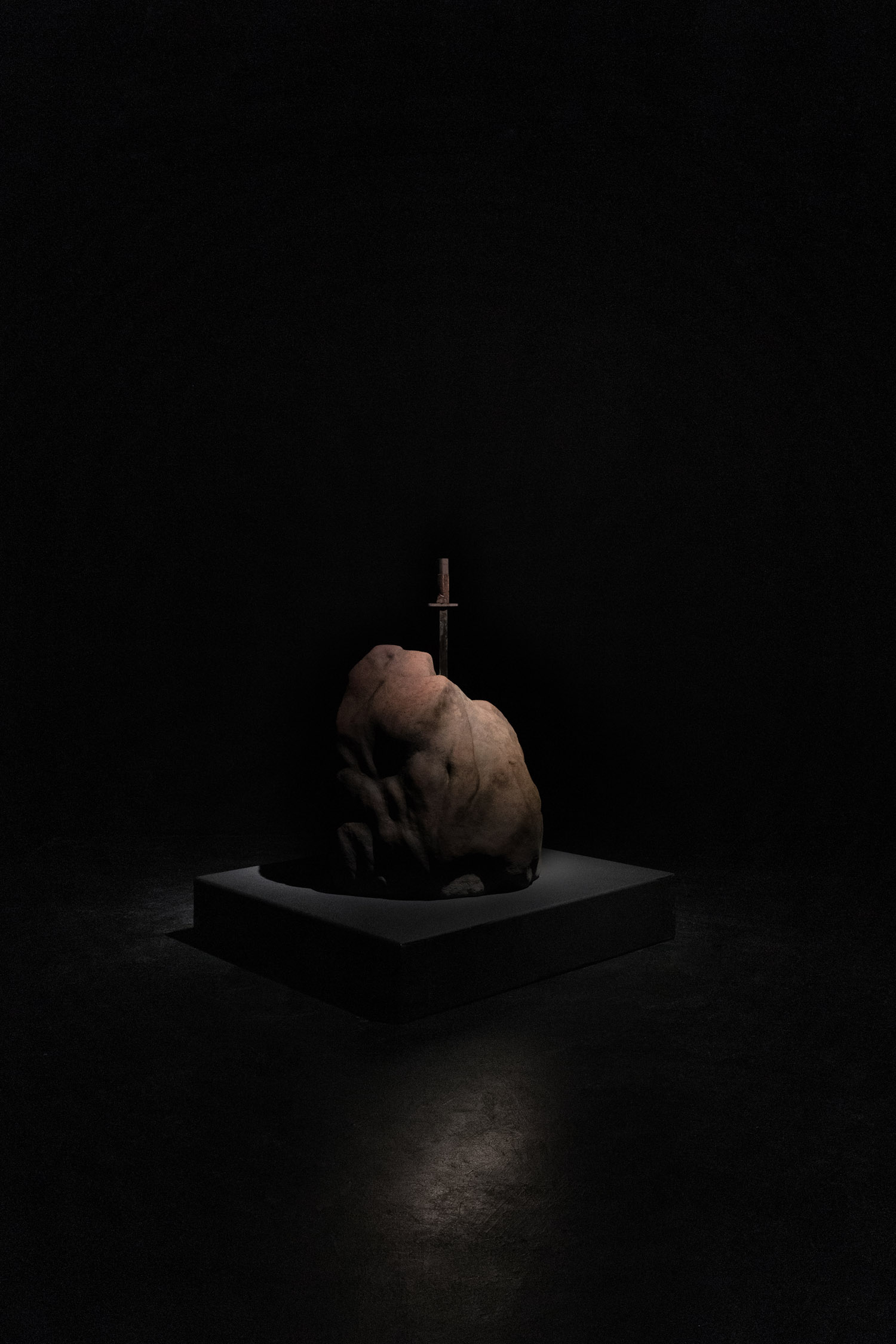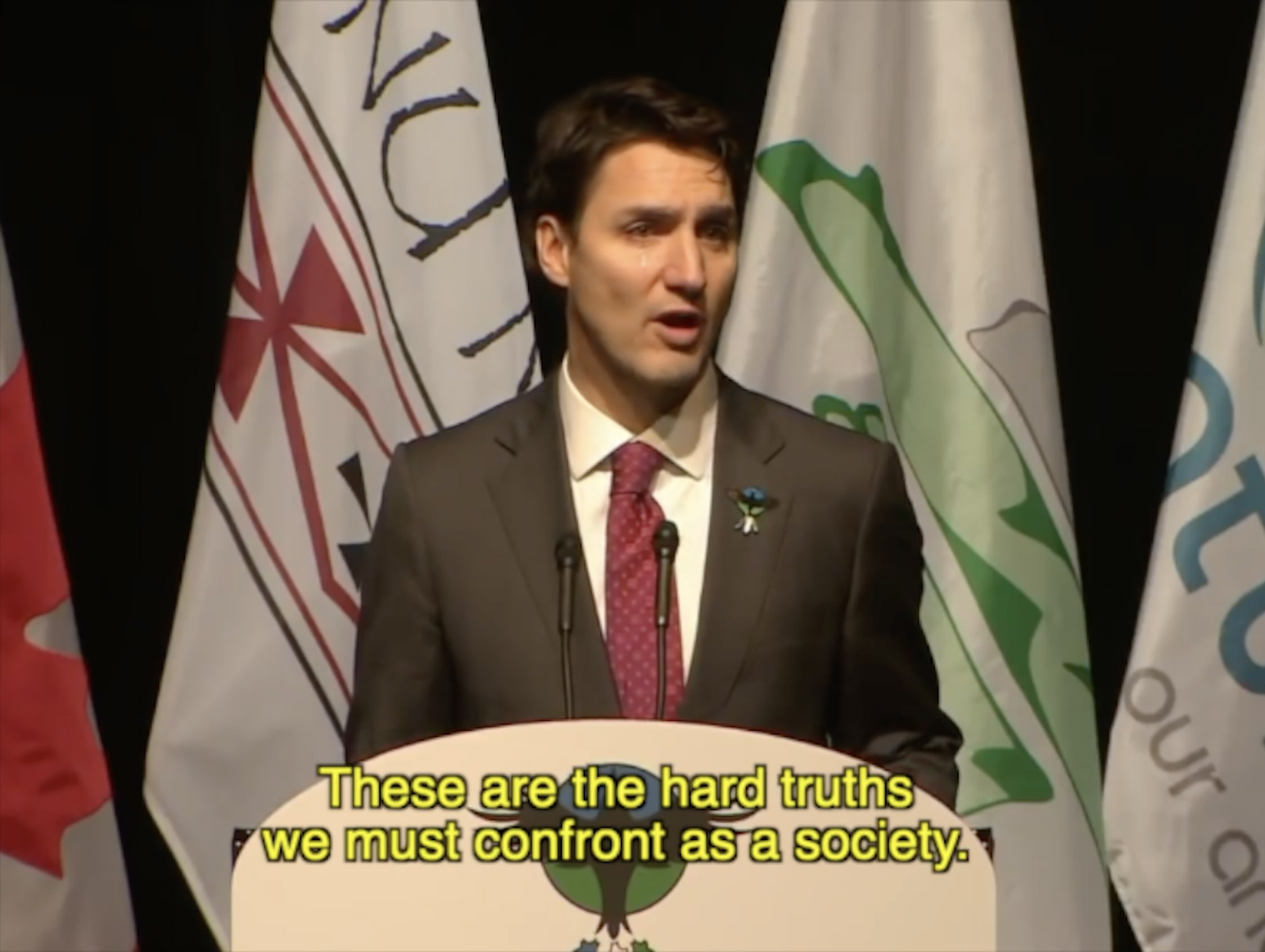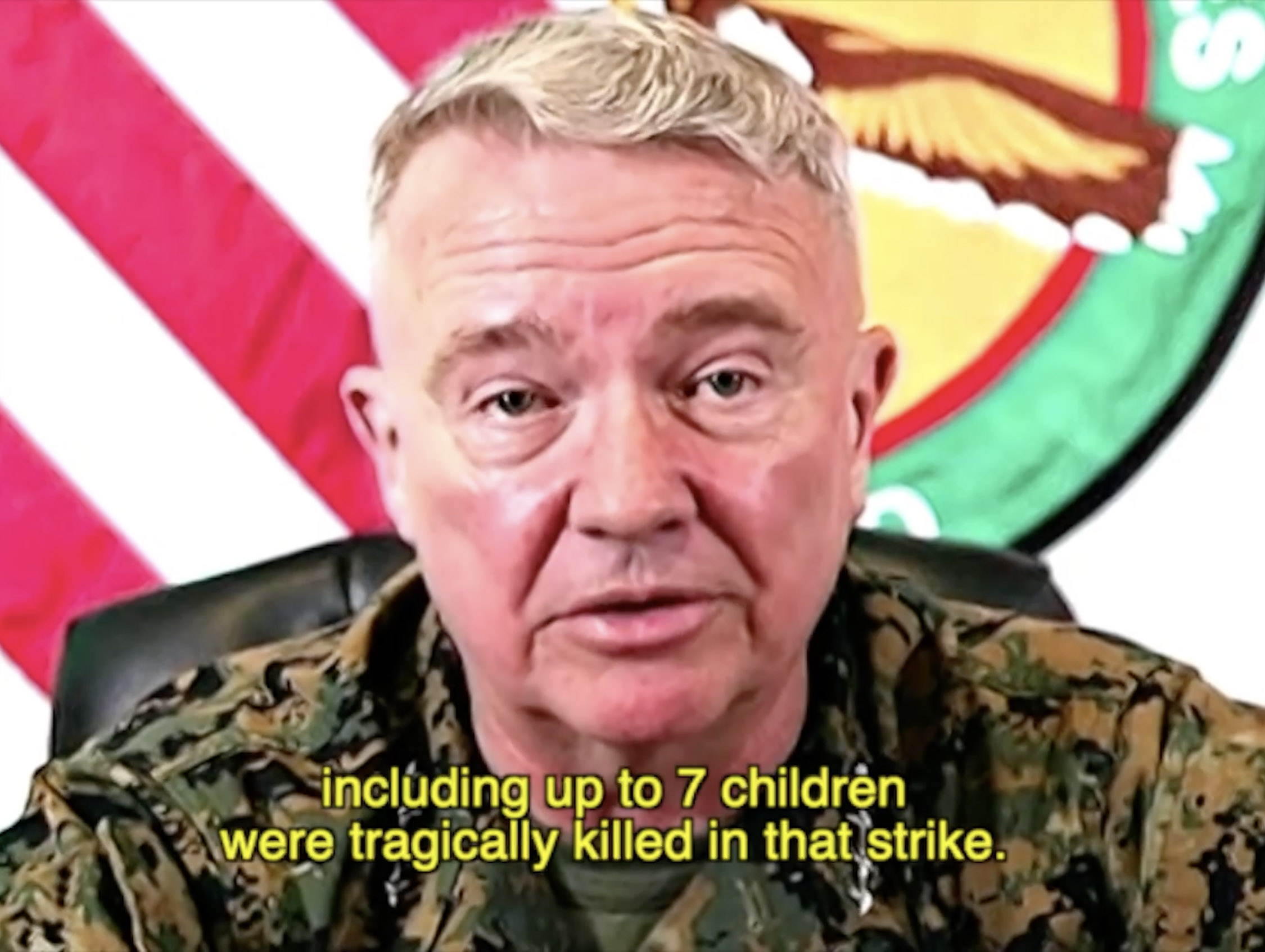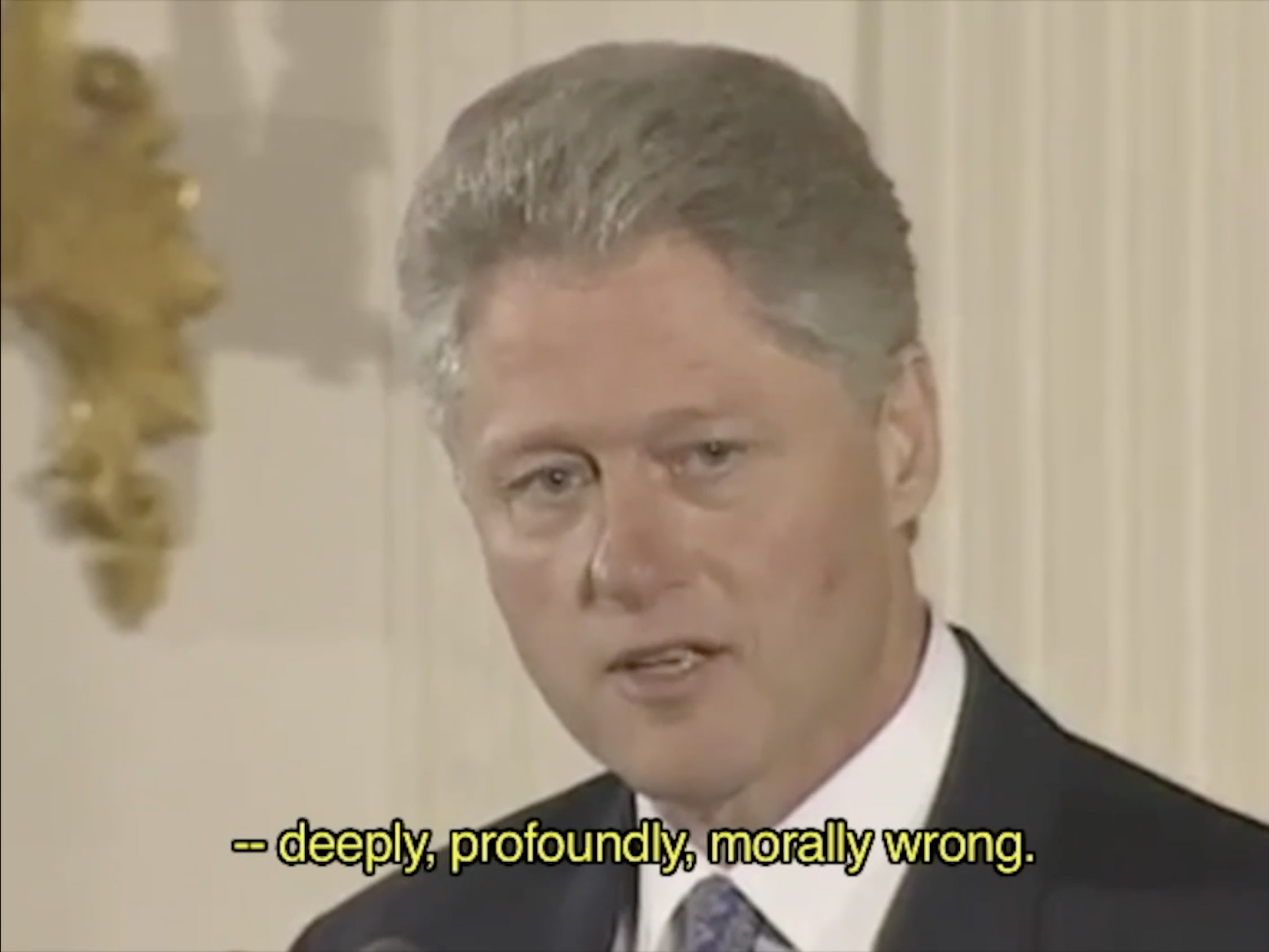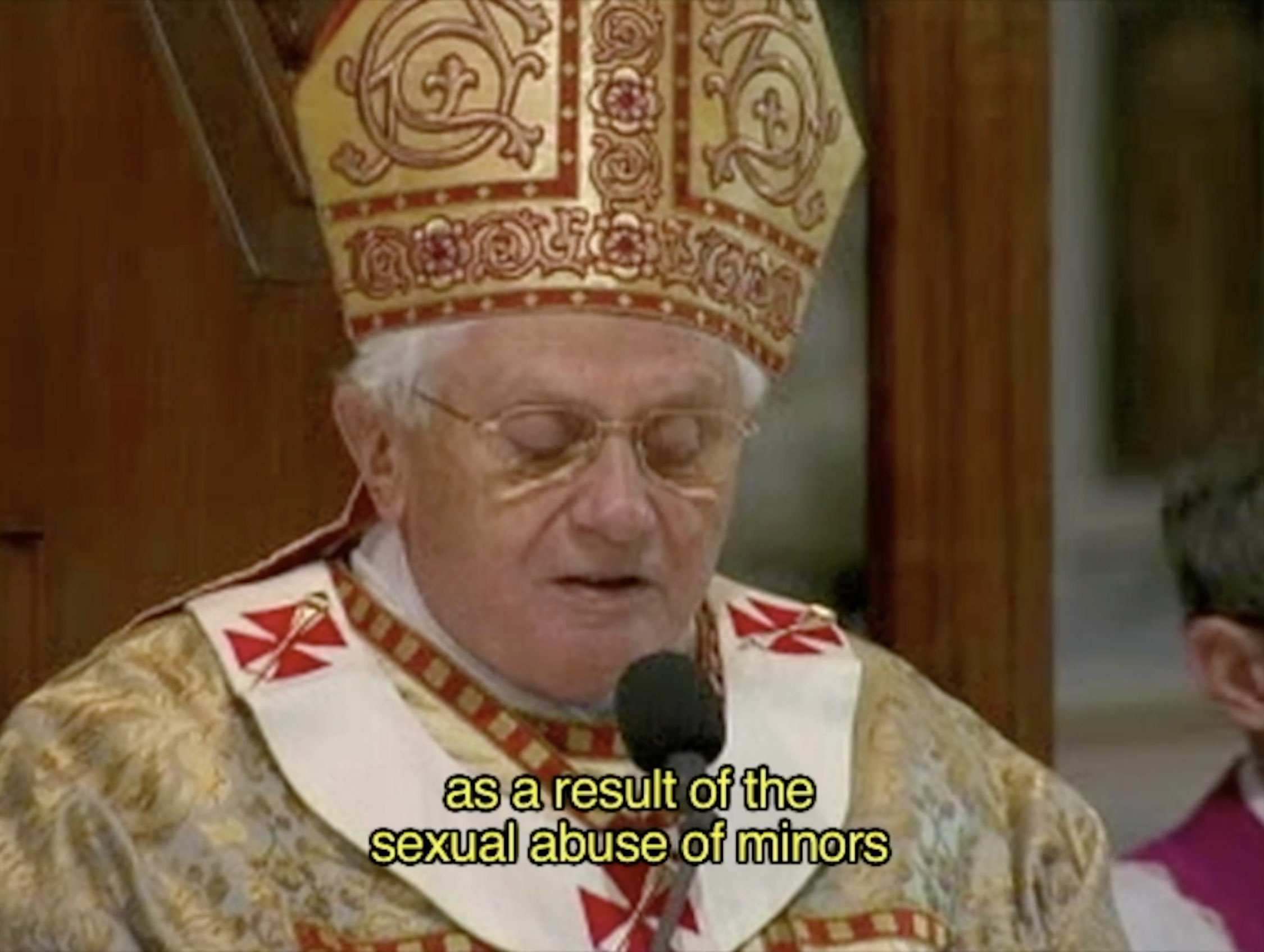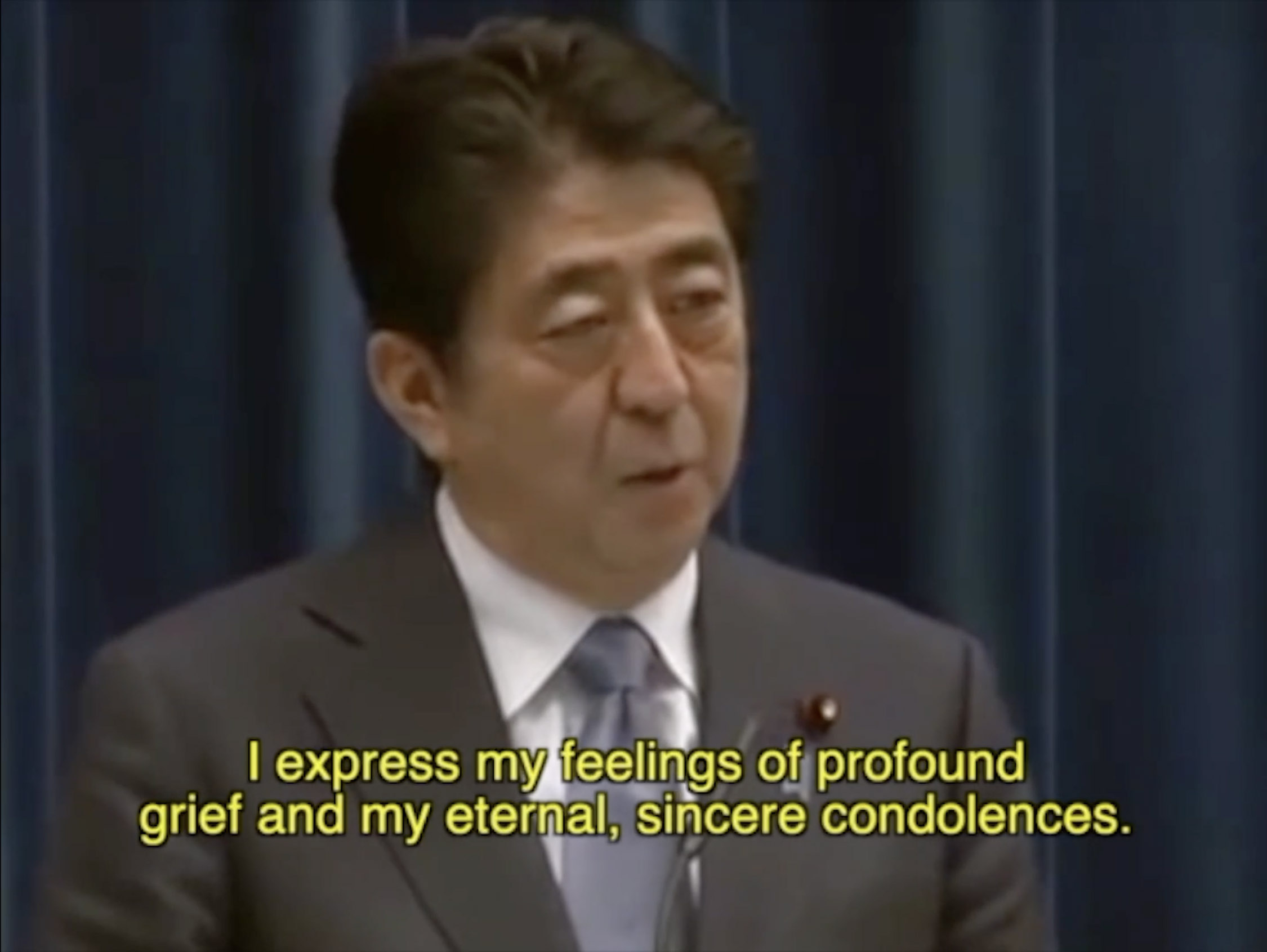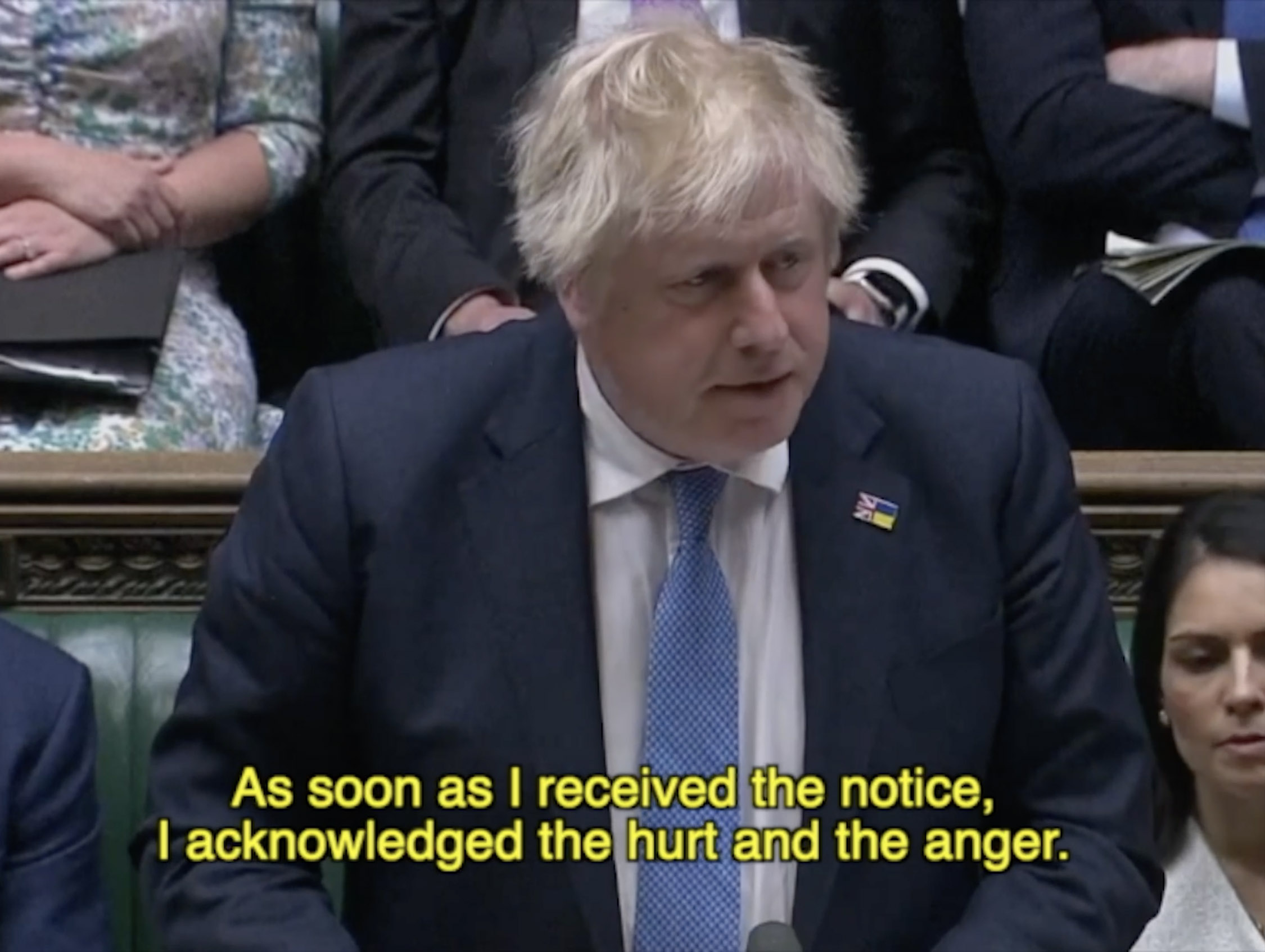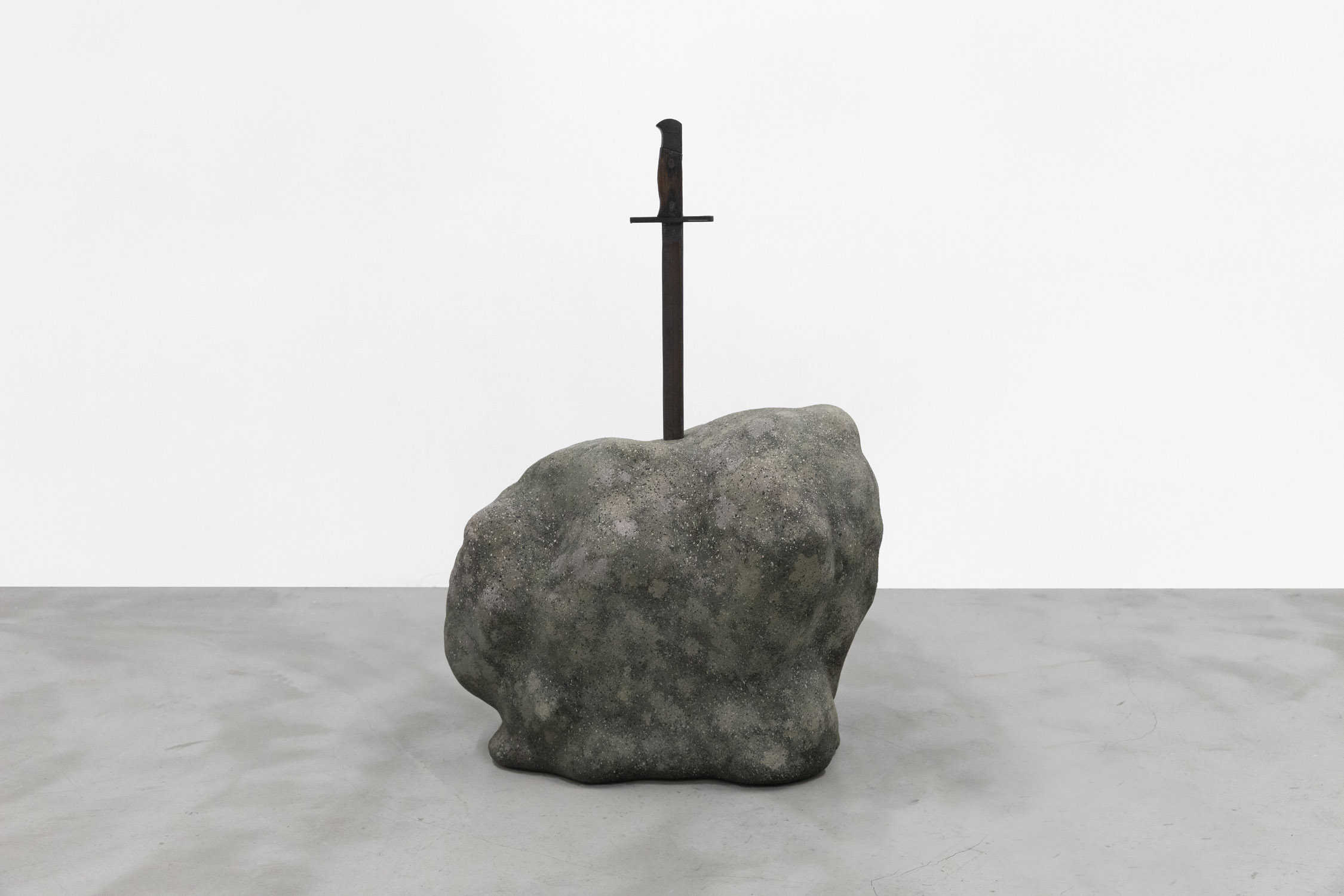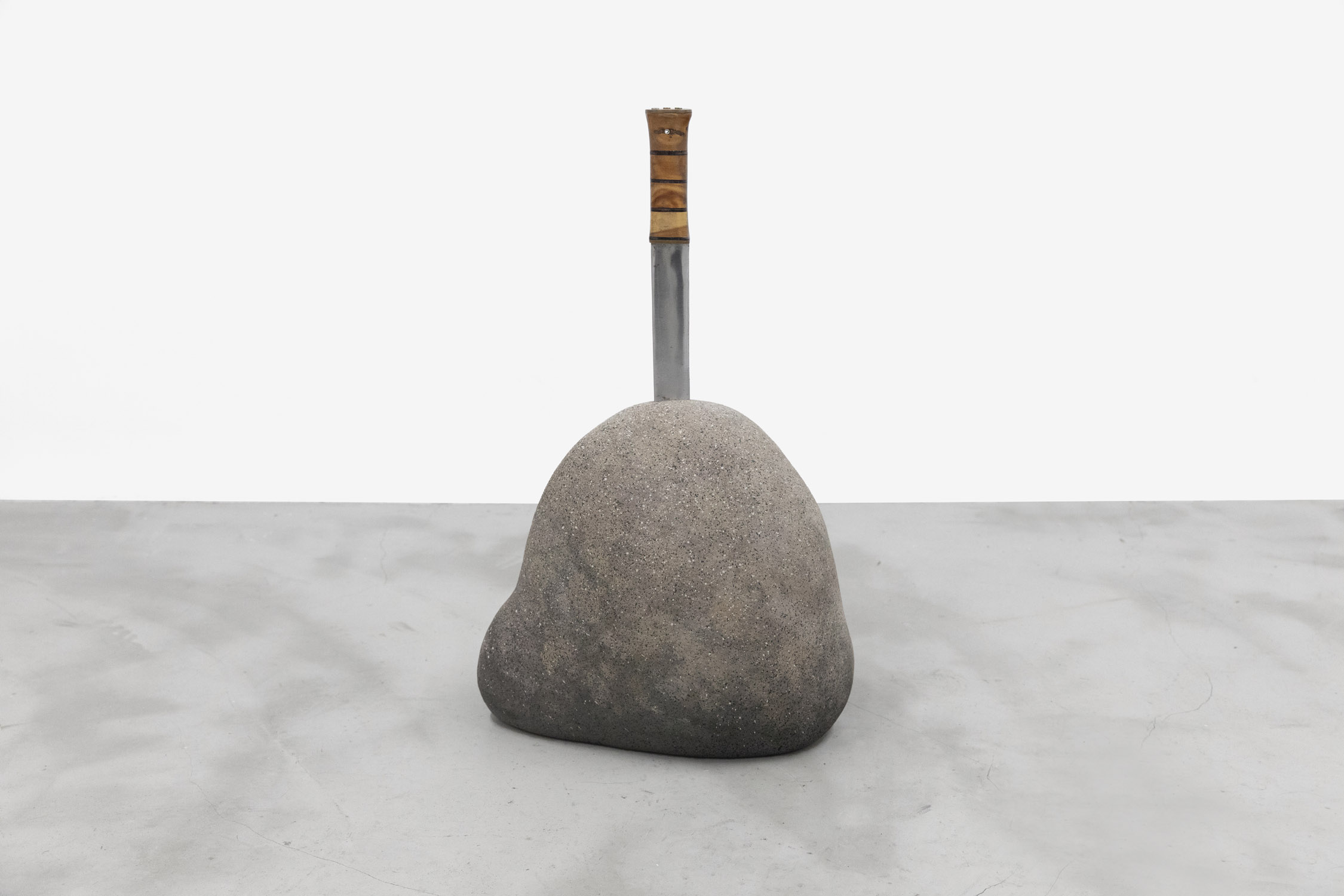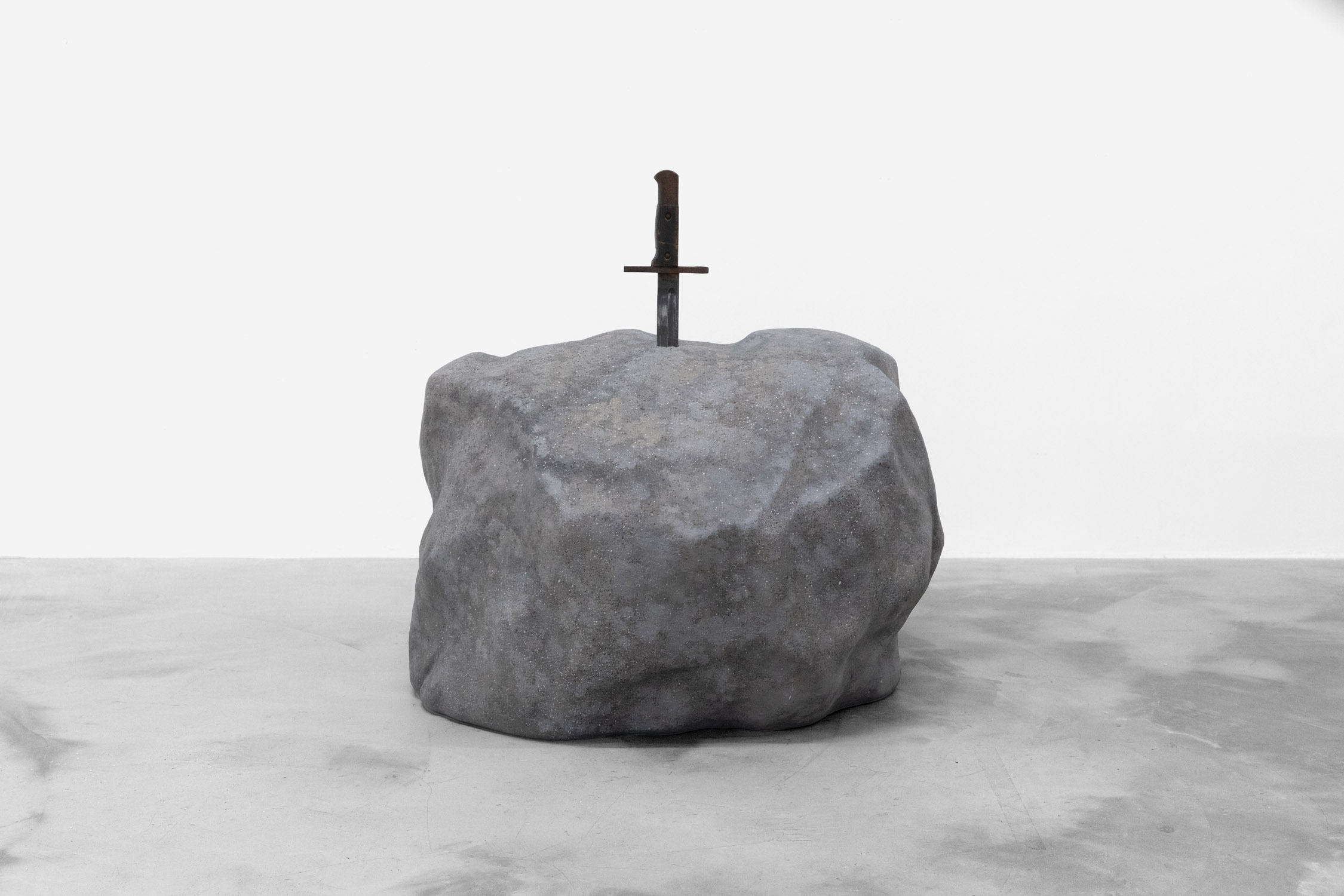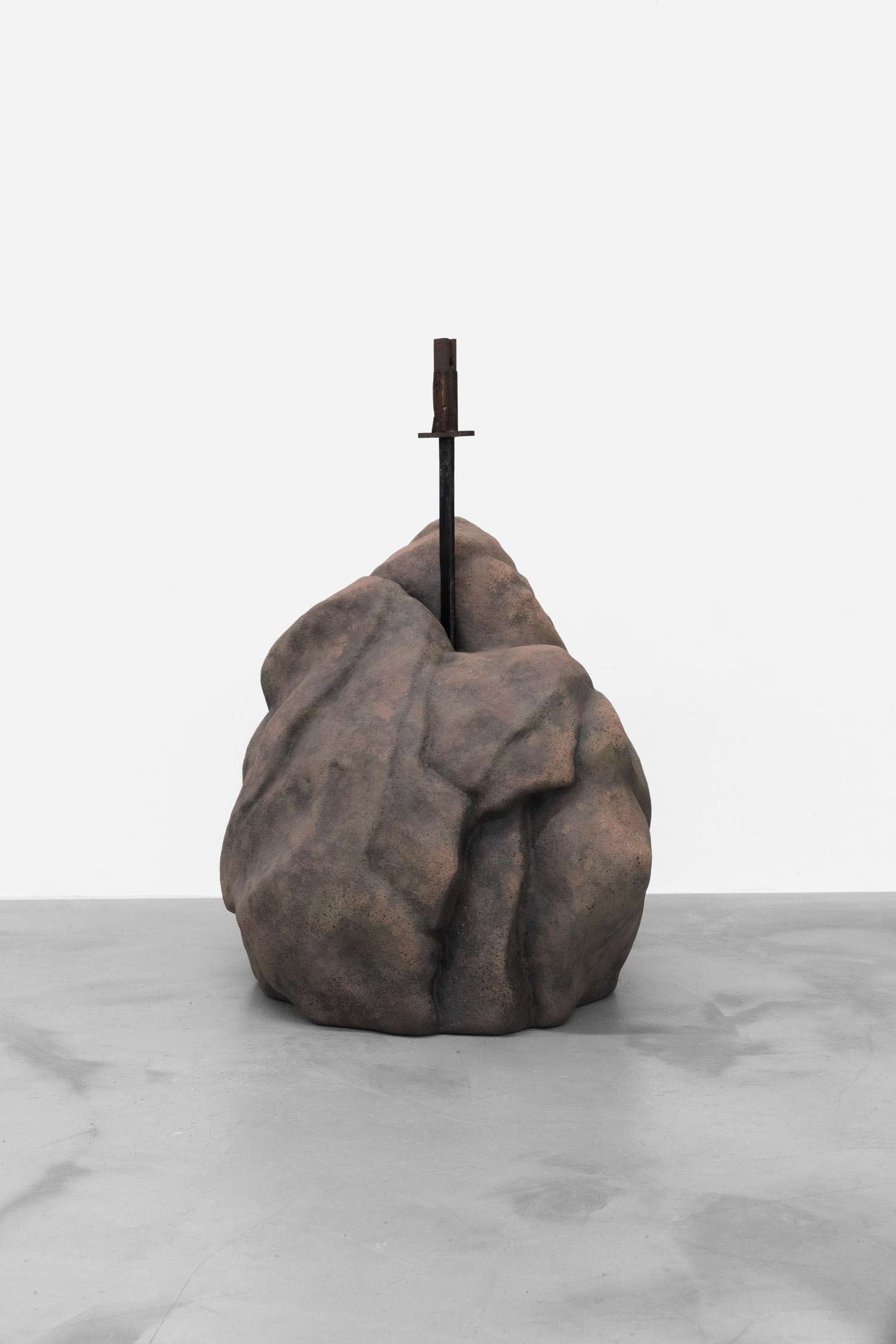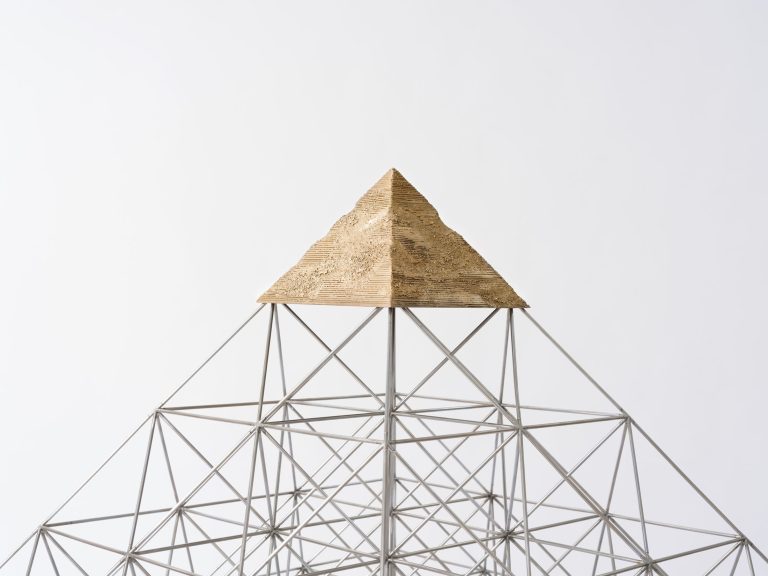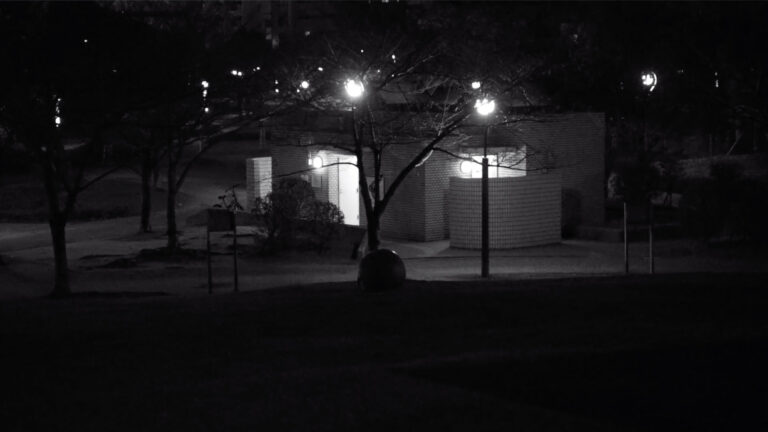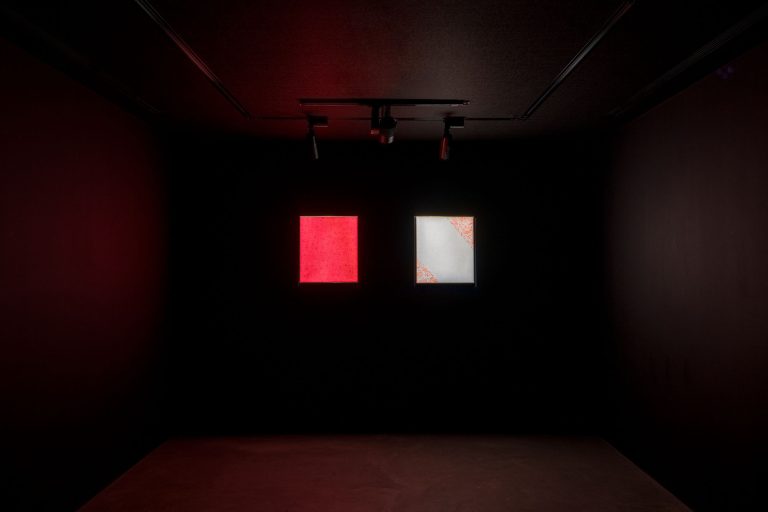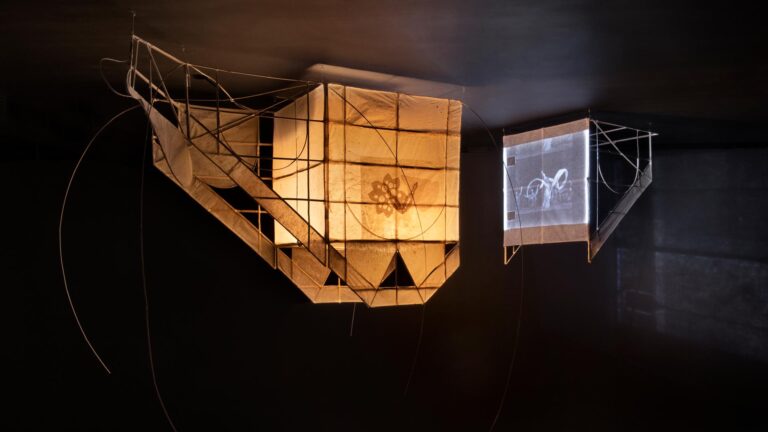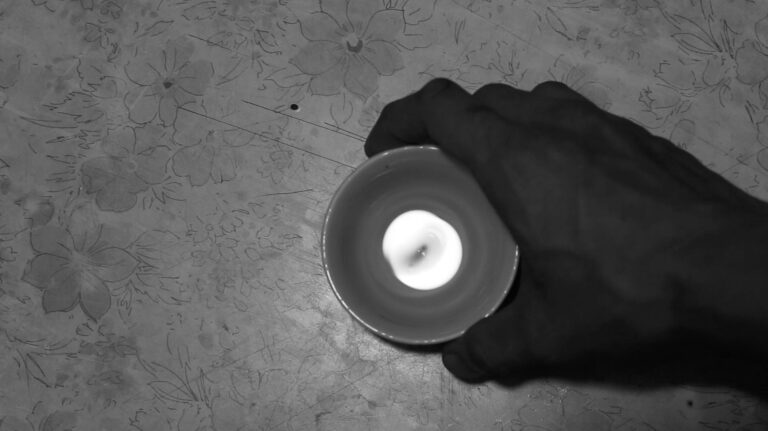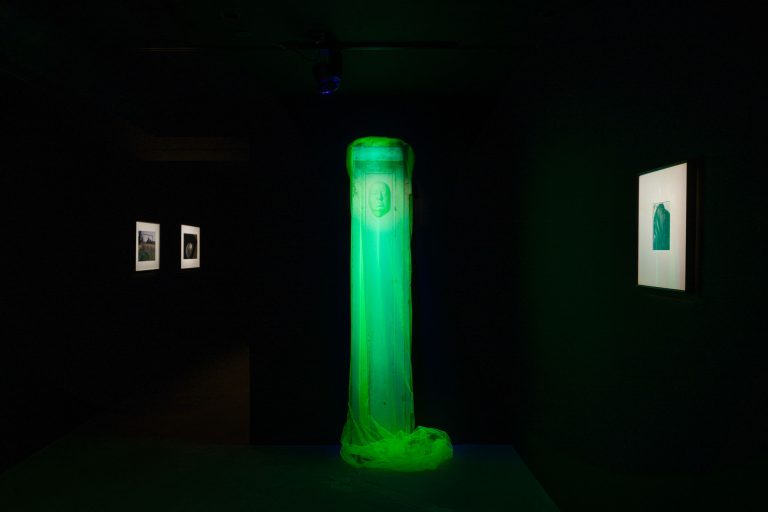Artist: James T. Hong
Exhibition title: Apologies and Other Regrets
Venue: Empty Gallery, Tin Wan, Hong Kong
Date: June 8 – August 17, 2024
Photography: Michael Yu / all images copyright and courtesy of the artist and Empty Gallery
Empty Gallery is pleased to present Apologies and Other Regrets, James T. Hong’s second solo exhibition with the gallery. Since the late 1990s, Hong has produced searing moving image works which deploy elements of experimental, documentary, and essayistic filmmaking to critically address issues of class, race, and historical trauma in America and East Asia. His research-based practice often operates along the fraught intersection of epistemological and socio-political questions, interrogating the manner in which knowledge is produced, disseminated, and manipulated in the service of power.
In our 19th floor gallery, Hong presents the newest iteration of his film Apologies (2012-ongoing) in a monumental three-channel version. Shown most recently at the Jewish Museum in Vienna, Apologies is a taxonomic investigation into that most contemporary phenomenon: the political apology. Hong’s film functions simultaneously as documentation of the technics of mediatized diplomacy, and a sort of historical index of past atrocities via their––often facile––national acknowledgements. Painstakingly assembling broadcast footage of various heads of state––from Willy Brandt’s historic visit to the Warsaw Ghetto to contemporary regrets over the seizure of indigenous land––Apologies sometimes resembles a perverse compilation of “greatest hits”, albeit one filtered through Hong’s uniquely grim sense of humor and the rhythmic seriality of the structural film. Apologies may at first seem impenetrable, or perhaps even arbitrary, a procedural exercise whose aura of gray facticity and strained propriety contains few aesthetic charms. But after a while, the polished surfaces of these diplomatic performances start to exert their own sort of hypnotic pull. Within the overdetermined space of the public apology, attention is drawn towards the supposedly inessential. The viewer watches for inevitable fissures between script and performance, moments of either semiotic scarcity or excess, analyzing the politician’s body like a text, on the hunt for insincerity or double-meanings communicated through the length of a pause or tilt of the head. Experiencing these performances in series, one is occasionally struck by a strange sense of pathos. However terrible the leader or great the crime, we are still confronted with the insufficiency of a single human body to ever contain the symbolic weight of history and nation—perhaps pointing to the essential futility of even apologizing for these events at all. Apologies, then, proffers itself as evidence of the failure of modern politics to address historical trauma and break free from cyclical violence—the supposed moral progress of history reduced to a formalist repetition of apologetic styles.
On our lower floor, Hong will also present a series of new sculptures entitled Stabbed In The Back. Referencing the famous English fable of the sword in the stone, these sculptures take the form of trompe-loeil rocks—resembling what one might find on a film set or amusement park—embedded with WWII-era Japanese bayonets. Juxtaposing the light-hearted kitsch of the fantasy prop with the brutal facticity of the murder weapon, these works point to the complex dialectic between historical truth and national mythology. Embodying the (literal) weaponization of trauma, they bear witness to the ever-present possibility for real historical violence to re-animate itself and erupt into the present.
